Yes, you can apply benzoyl peroxide on your face· It’s often used to treat acne· Just make sure to use a small amount and start with a lower strength to see how your skin reacts· It can sometimes cause dryness or irritation, so it’s good to use a moisturizer too· If you have sensitive skin, patch test first or consult with a dermatologist·
Table of Contents
- What is benozyl peroxide ?
- Is it safe to use benzoyl peroxide on face ?
- How long should you leave benzoyl peroxide on your face ?
- Benefits of applying benozyl peroxide on face
- Are you supposed to rub in benzoyl peroxide ?
- Do you put benzoyl peroxide over or under moisturizer ?
- Who Cannot use benzoyl peroxide ?
- Does beozyl peroxide lighten skin ?
- What is the controversy with benzoyl peroxide ?
- Top 10 Facts About Benozyl Peroxide
- Is it okay to put benzoyl peroxide on a popped pimple ?
- What’s better for acne benzoyl peroxide or salicylic acid ?
- Does benozyl peroxide clog pores ?
- Does benzoyl peroxide shrink pimples ?
- What not to mix with benzoyl peroxide as well as Can you apply benzoyl peroxide on face ?
- Does benzoyl peroxide remove acne scars ?
- What vitamins and minerals are present in benozyl peroxide ?
- Can you sleep with benzoyl peroxide on your face ?
- Is benzoyl peroxide 5 or 10 better ?
- Does beozyl peroxide brighten skin ?
- What cancels out benzoyl peroxide ?
- Why is benzoyl peroxide banned in Europe ?
- Side effects of applying benozyl peroxide on face
- Does benzoyl peroxide damage skin in long term ?
- Conclusion
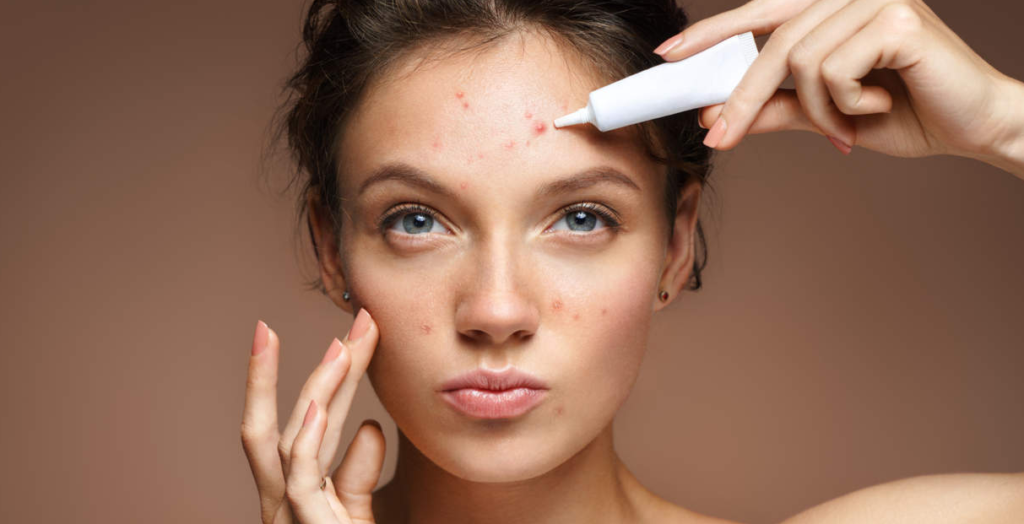
What is benozyl peroxide ?
Benzoyl peroxide is a medicine used to treat acne· It works by killing bacteria on your skin and helps to keep your pores clear· You can find it in many acne creams, gels, and face washes· It can sometimes cause dryness or irritation, so it’s good to use a moisturizer too·
Is it safe to use benzoyl peroxide on face ?
Yes, it’s generally safe to use benzoyl peroxide on your face for treating acne· Start with a small amount and a lower strength to see how your skin reacts· It can sometimes cause dryness or irritation, so use a moisturizer and avoid using it too often· If you have sensitive skin, do a patch test first or check with a dermatologist·
How long should you leave benzoyl peroxide on your face ?
You can leave benzoyl peroxide on your face for about 5-10 minutes if you’re using it as a wash, then rinse it off· If it’s a leave-on treatment, follow the instructions on the product, usually leaving it on overnight· Start with a shorter time to see how your skin reacts· Always follow up with a moisturizer to prevent dryness·
Benefits of applying benozyl peroxide on face
- Fights Acne: Benzoyl peroxide effectively kills the bacteria that cause acne, reducing breakouts·
- Unclogs Pores: It helps to clear out and prevent clogged pores, which can lead to pimples and blackheads·
- Reduces Inflammation: It reduces redness and swelling associated with acne, helping to calm irritated skin·
- Exfoliates Skin: Benzoyl peroxide acts as a mild exfoliant, removing dead skin cells and promoting new cell growth·
- Prevents Future Breakouts: Regular use can prevent new pimples from forming, maintaining clearer skin over time·
- Improves Skin Texture: By keeping pores clear and reducing acne, it can improve overall skin texture·
- Minimizes Acne Scars: Helps to prevent severe breakouts, which can lead to scarring·
- Controls Oil Production: It helps to reduce excess oil on the skin, which can contribute to acne·
- Quick Results: Many users see improvements in their acne within a few days to weeks of use·
- Easy to Use: Available in various forms like creams, gels, and face washes, making it easy to incorporate into any skincare routine·
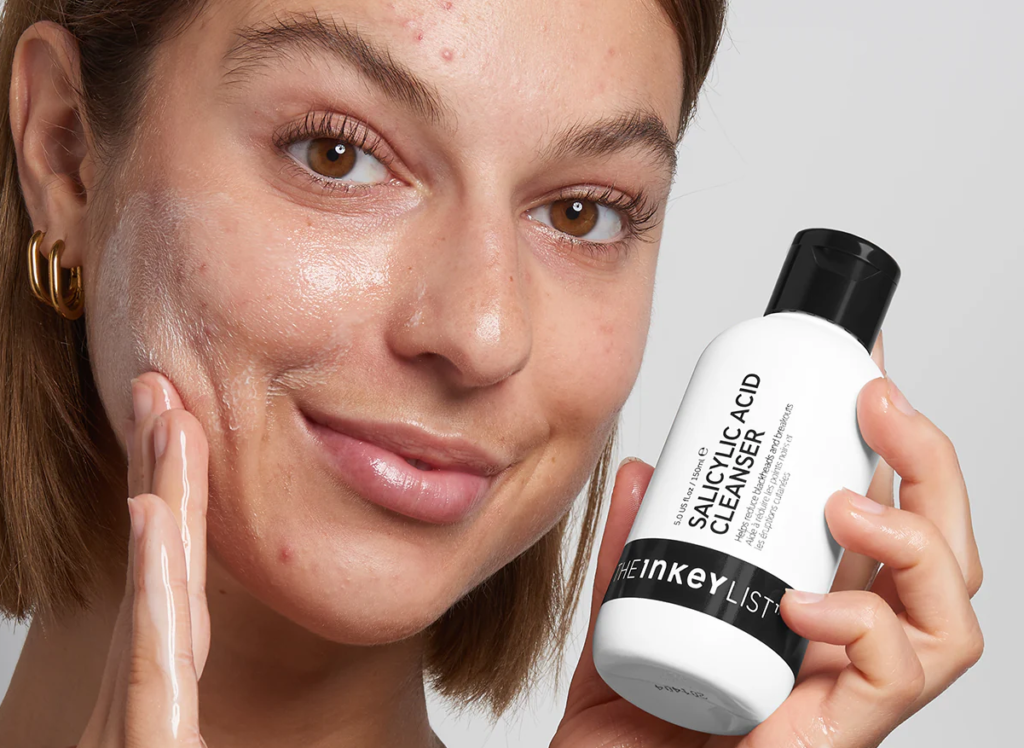
Are you supposed to rub in benzoyl peroxide ?
Yes, you should gently rub benzoyl peroxide into your skin· Use clean hands to apply a small amount to the affected areas and massage it in until it’s absorbed· Be gentle to avoid irritation· After applying, wash your hands to prevent bleaching fabrics or hair·
Do you put benzoyl peroxide over or under moisturizer ?
When using benzoyl peroxide, apply it before your moisturizer· Start with a clean face, then gently rub in a thin layer of benzoyl peroxide to the areas with acne· Let it absorb completely before applying moisturizer· This helps the benzoyl peroxide to work effectively against acne, while the moisturizer helps to keep your skin hydrated and minimize any potential dryness or irritation caused by the benzoyl peroxide·
Who Cannot use benzoyl peroxide ?
People with very sensitive skin or known allergies to benzoyl peroxide should avoid using it· If you have eczema or rosacea, it’s best to consult a dermatologist before using benzoyl peroxide· Pregnant or breastfeeding individuals should also talk to their doctor before using it, just to be safe· Always do a patch test before trying any new skincare product to check for any adverse reactions·
Does beozyl peroxide lighten skin ?
Benzoyl peroxide can sometimes lighten the skin slightly, especially if used for a long time or in high concentrations· This is because it can bleach fabric and hair· However, it’s not typically used for skin lightening purposes· Its main job is to treat acne by killing bacteria and unclogging pores· If you’re concerned about skin lightening effects, talk to a dermatologist about alternative treatments·
What is the controversy with benzoyl peroxide ?
Some controversy surrounds benzoyl peroxide due to its potential to cause dryness, irritation, and bleaching of fabrics and hair· Some people may also have allergic reactions to it· Additionally, there are concerns about its long-term effects on skin health· However, many find it effective for treating acne when used correctly· It’s essential to follow usage instructions, start with a lower concentration, and consult a dermatologist if you have concerns·
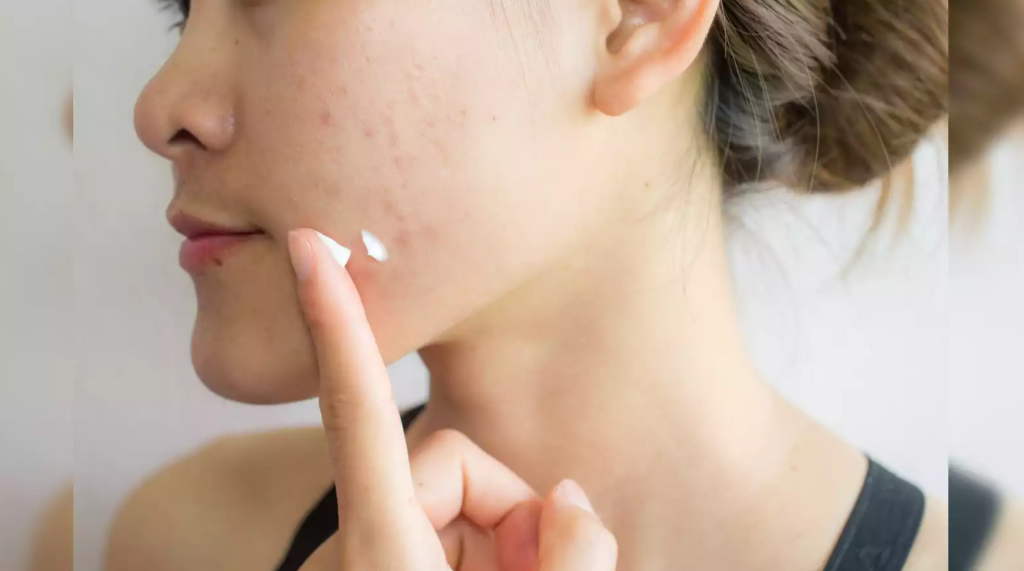
Top 10 Facts About Benozyl Peroxide
- Acne Treatment: Benzoyl peroxide is widely used to treat acne by killing the bacteria that cause breakouts·
- Available Over-the-Counter: It’s available in various forms without a prescription, such as creams, gels, and washes·
- Bleaching Agent: Benzoyl peroxide can bleach fabrics and hair, so be careful when using it·
- Unclogs Pores: It helps to unclog pores by removing dead skin cells and excess oil·
- Reduces Inflammation: Benzoyl peroxide can reduce redness and swelling associated with acne·
- Comes in Different Strengths: It’s available in different strengths, usually ranging from 2·5% to 10%·
- May Cause Dryness and Irritation: Some people may experience dryness, peeling, or irritation when using benzoyl peroxide·
- Not Suitable for Everyone: People with sensitive skin or allergies to benzoyl peroxide should avoid using it·
- Can Take Time to Work: It may take several weeks of consistent use to see significant improvements in acne·
- Can Be Used Preventatively: Benzoyl peroxide can be used regularly to prevent new acne breakouts from forming·
Is it okay to put benzoyl peroxide on a popped pimple ?
It’s generally not recommended to put benzoyl peroxide on a popped pimple· The skin around a popped pimple is already irritated and sensitive, and benzoyl peroxide may further irritate it· It’s best to let the popped pimple heal on its own and avoid applying harsh chemicals to prevent more irritation or potential scarring· Instead, keep the area clean and apply a gentle, soothing moisturizer·
What’s better for acne benzoyl peroxide or salicylic acid ?
| Criteria | Benzoyl Peroxide | Salicylic Acid |
|---|---|---|
| Mechanism of Action | Kills acne-causing bacteria | Unclogs pores and reduces oiliness |
| Treatment Type | Targets existing acne | Targets existing acne and prevents new breakouts |
| Inflammation Reduction | May reduce redness and swelling | May have mild anti-inflammatory properties |
| Skin Types | Suitable for oily and combination skin | Suitable for oily and sensitive skin |
| Side Effects | Can cause dryness, irritation, and bleaching | Can cause dryness and mild irritation |
| Availability | Available over-the-counter | Available over-the-counter |
| Usage Frequency | Usually once or twice daily | Can be used daily or less frequently |
| Effectiveness | Effective for inflammatory acne | Effective for mild to moderate acne |

Does benozyl peroxide clog pores ?
No, benzoyl peroxide doesn’t clog pores· In fact, it’s quite the opposite! Benzoyl peroxide works by clearing clogged pores and killing the bacteria that cause acne· It helps to unclog pores by removing dead skin cells and excess oil, making it a useful tool in the fight against acne· So, using benzoyl peroxide can actually help to keep your pores clear and your skin looking its best·
Does benzoyl peroxide shrink pimples ?
Yes, benzoyl peroxide can help shrink pimples· It works by killing the bacteria that cause acne and reducing inflammation, which can make pimples smaller and less noticeable· By unclogging pores and preventing new breakouts, benzoyl peroxide can also help prevent pimples from getting bigger or forming in the first place· Just be sure to use it as directed and be patient, as it may take some time to see results·
What not to mix with benzoyl peroxide as well as Can you apply benzoyl peroxide on face ?
Avoid mixing benzoyl peroxide with other acne treatments like salicylic acid or retinoids, as it can increase dryness and irritation· Also, be careful when using benzoyl peroxide with products containing sulfur or resorcinol, as they may interact· Using harsh exfoliants or abrasive scrubs along with benzoyl peroxide can also irritate the skin· It’s best to stick to a simple skincare routine and avoid combining too many active ingredients·
Does benzoyl peroxide remove acne scars ?
Benzoyl peroxide is not typically used to remove acne scars· Its main job is to treat acne by killing bacteria and unclogging pores· While it may help prevent new breakouts, it doesn’t have the ability to fade existing scars· For treating acne scars, other options like topical retinoids, chemical peels, or laser treatments may be more effective· Always consult with a dermatologist for the best treatment for your specific skin concerns·
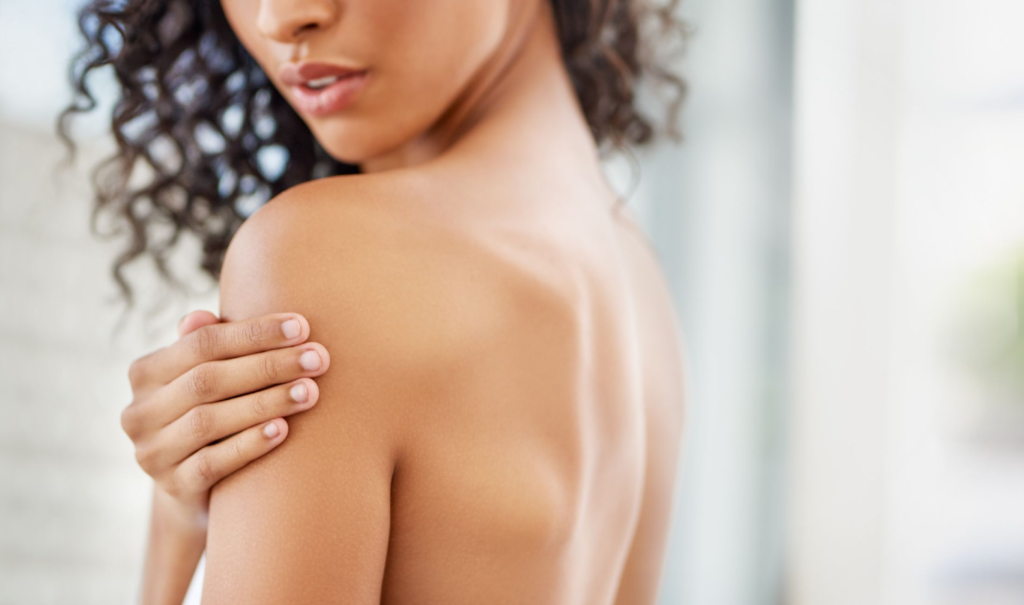
What vitamins and minerals are present in benozyl peroxide ?
Benzoyl peroxide is a medication used for treating acne, but it doesn’t contain any vitamins or minerals· It’s primarily composed of benzoyl peroxide as the active ingredient, along with other inactive ingredients like water, glycerin, and various stabilizers or preservatives· It’s not intended to provide nutritional benefits, so it doesn’t include vitamins or minerals in its formulation·
Can you sleep with benzoyl peroxide on your face ?
Yes, you can sleep with benzoyl peroxide on your face, but it’s essential to follow the instructions on the product· Some benzoyl peroxide treatments are designed to be left on overnight, while others may require rinsing off after a certain amount of time· Be sure to start with a small amount and gradually increase if your skin tolerates it well· Always use a moisturizer to prevent dryness·
Is benzoyl peroxide 5 or 10 better ?
The effectiveness of benzoyl peroxide depends on your skin’s sensitivity and the severity of your acne· Lower strengths like 5% are often less harsh and may be a good starting point for sensitive skin· If your acne is more stubborn, 10% might be more effective, but it can also increase the risk of dryness and irritation· It’s best to start with 5% and see how your skin reacts·
Does beozyl peroxide brighten skin ?
Benzoyl peroxide isn’t typically used to brighten skin· Its main job is to treat acne by killing bacteria and unclogging pores· While it may help improve overall skin texture and clarity by reducing breakouts, it doesn’t have the same brightening effects as some other skincare ingredients like vitamin C or niacinamide· If you’re looking to brighten your skin, consider using products specifically formulated for that purpose·
What cancels out benzoyl peroxide ?
Avoid combining benzoyl peroxide with other acne treatments like salicylic acid or retinoids, as they can increase dryness and irritation· Also, be careful when using benzoyl peroxide with products containing sulfur or resorcinol, as they may interact· Using harsh exfoliants or abrasive scrubs along with benzoyl peroxide can also irritate the skin· Stick to a simple skincare routine and avoid combining too many active ingredients·
Why is benzoyl peroxide banned in Europe ?
Benzoyl peroxide isn’t banned in Europe· It’s widely available for treating acne· However, some concentrations are restricted due to safety concerns· Higher concentrations are classified as prescription-only, while lower strengths are available over-the-counter· These regulations ensure safe usage· Always follow product instructions and consult a healthcare professional if needed·
Side effects of applying benozyl peroxide on face
- Dryness: Benzoyl peroxide can cause dryness, flakiness, or peeling of the skin, especially with higher concentrations·
- Irritation: Some people may experience redness, burning, itching, or stinging sensations after applying benzoyl peroxide·
- Sensitivity: It can make the skin more sensitive to sunlight, leading to increased risk of sunburn·
- Bleaching: Benzoyl peroxide may bleach fabrics, clothing, towels, or hair upon contact·
- Allergic Reactions: In rare cases, benzoyl peroxide can cause allergic reactions such as rash, swelling, or hives·
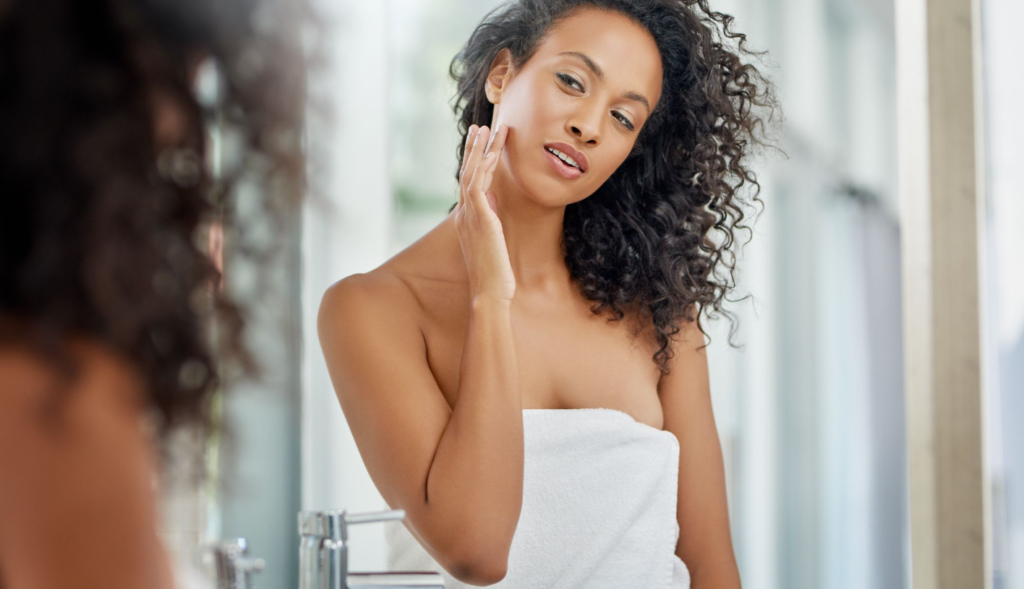
Does benzoyl peroxide damage skin in long term ?
Extended use of benzoyl peroxide can lead to dryness, irritation, and increased sensitivity, especially with higher concentrations· However, when used correctly, it’s generally safe for long-term use· Always follow instructions, start with a lower strength, and moisturize to minimize potential side effects· If you have concerns about long-term use, consult with a dermatologist for personalized advice·
Conclusion
In conclusion, the question “Can you apply benzoyl peroxide on face?” is a crucial consideration for skincare routines· It’s essential to weigh its efficacy against potential side effects· Can you apply benzoyl peroxide on face without adverse reactions? Can you apply benzoyl peroxide on face consistently for long-term benefits? Can you apply benzoyl peroxide on face safely alongside other skincare products? Can you apply benzoyl peroxide on face to combat acne effectively? Can you apply benzoyl peroxide on face daily or as needed? Can you apply benzoyl peroxide on face for spot treatments or full-face application? Can you apply benzoyl peroxide on face under the guidance of a dermatologist? Can you apply benzoyl peroxide on face confidently, knowing its potential and limitations? Ultimately, answering the question “Can you apply benzoyl peroxide on face?” requires informed decision-making and personalized skincare approaches·




